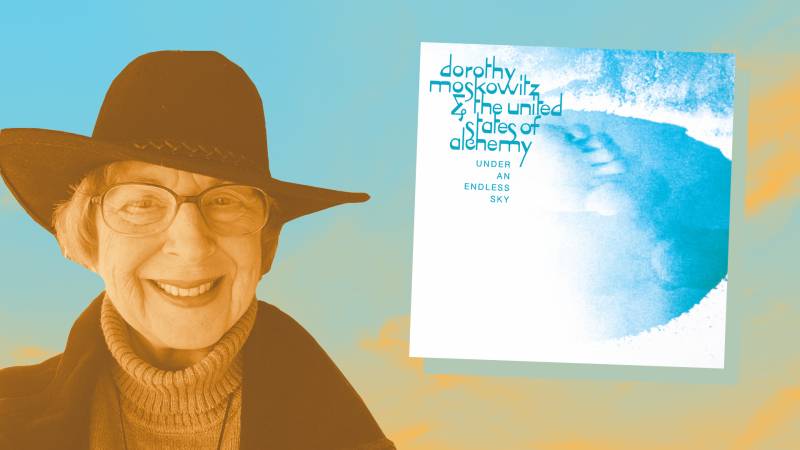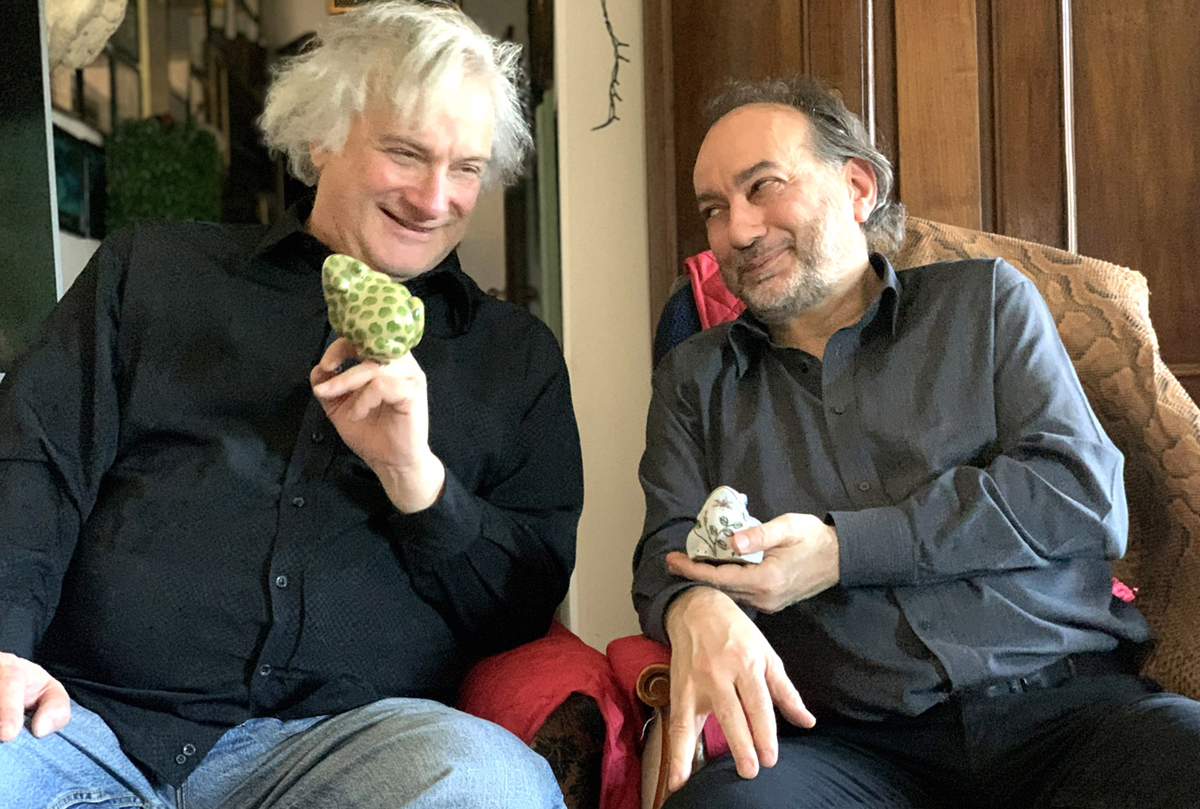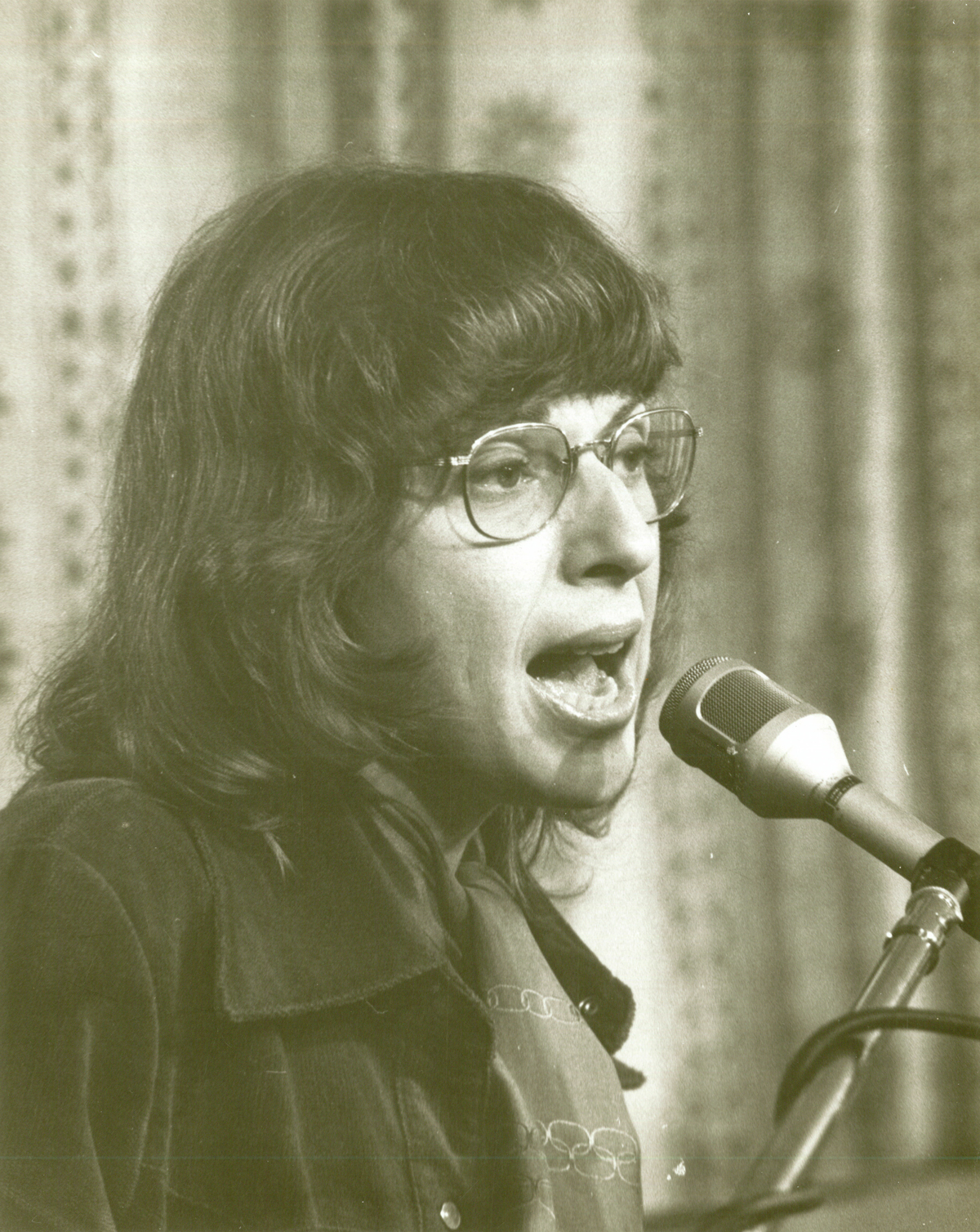When Dorothy Moskowitz first listened to work by the Italian composer Francesco Paolo Paladino, she heard something in his music that reminded her of the sound pieces of her youth. “I was astounded at how much chaos and mischief there was,” she says.
Now 82, Moskowitz has been involved in composing, recording and performing music for over seven decades. She was the lead vocalist for the experimental rock band The United States of America, which put out one eponymous album in 1968 and disbanded shortly after. Over the intervening years, Moskowitz has toured with Country Joe’s All Star Band, written original pieces for children’s musical theater, taught music and maintained her own recording practice out of her Bay Area home studio.
On March 17, her latest effort, Under an Endless Sky, a collaboration with Paladino and the poet Luca Chino Ferrari under the name The United States of Alchemy, comes out on Tompkins Square records. Moskowitz’s voice sits delicately over the electro-acoustic compositions, singing evocative lines that originated in Italian (Ferrari is a poet). Imagine Marianne Faithfull working with minimalist composer John Adams and you can begin to grok the shape of this lovely, sometimes eerie music. The team worked back and forth via email, with most of Ferrari’s lines passing through Google translate before Moskowitz refined the words and phrases in English and set it all to melodies.
“It’s part of the aesthetic, as far as I’m concerned,” says Moskowitz of her preference for collaboration over email. “I think there’s something that contaminates when you see people on Zoom and they’re in their pajamas. Not seeing or hearing each other keeps it very, very pure, very elevated. It’s coming from another world.”
There’s definitely something otherworldly about transmitting emails back and forth across two languages and international borders that helps to explain the seven ethereal songs on Under an Endless Sky. The album opens with a 23-minute title track of virtual keyboards, violins, a string trio (Trio Cavalazzi) and horns. Moskowitz’s vocals first enter at nearly the three-minute mark, underlining the sci-fi-esque nature of our modern existence: “How strange a thing is man / A blinded lab rat in a cage / Stuck in his house, elevator or car / His eyes engulfed by screens.”





